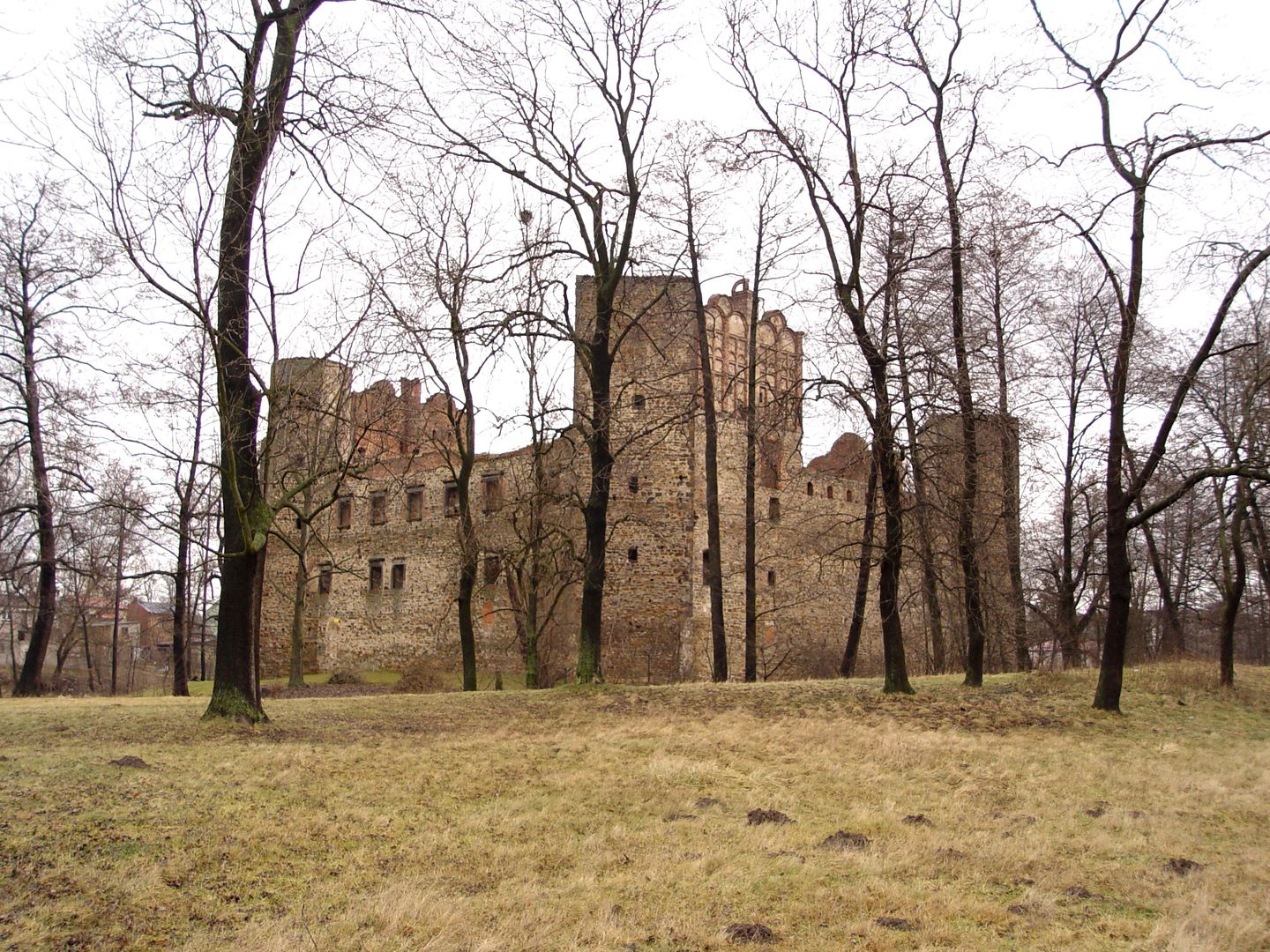Gothic-Renaissance castle from the 16th century.
7.05

Overview
Drzewica Castle, built between 1527 and 1535 on the initiative of the Archbishop of Gniezno, Maciej Drzewicki, is an example of Gothic-Renaissance architecture. It is located on the outskirts of the town, on the Drzewiczka River, surrounded by two moats and an earthen rampart. The structure has a regular, nearly square layout with four square towers situated at the corners, giving it a distinctive appearance. Constructed from stone and brick, the castle was originally plastered. Its unique architectural features include five-story towers, one of which is octagonal in shape, and a three-story residential building with oriels and balconies. A fire in 1814 destroyed the castle's interiors, but its walls remained in good condition, making it one of the best-preserved structures of its kind from the 16th century in Poland.
The castle's history is rich; after Archbishop Drzewicki, it passed into the hands of successive owners, and in the 18th century, it was donated to the Bernardine nuns after a fire destroyed their convent. Renovations and archaeological investigations took place in the 20th century, particularly in 1948–49 and 1985–86, and in 1990, the castle was purchased by a private owner. Although the castle has not been significantly altered since its construction, it still retains many original elements, including remnants of 18th-century polychrome paintings in the former service building, which was converted into a chapel. The castle's history is complemented by intriguing tales, such as the legend of a fire that broke out after Rorate Masses. Thus, Drzewica Castle is not only an architectural monument but also an important historical and cultural landmark of the region, attracting the attention of history and architecture enthusiasts.
Location
2026 Wizytor | All Rights Reserved